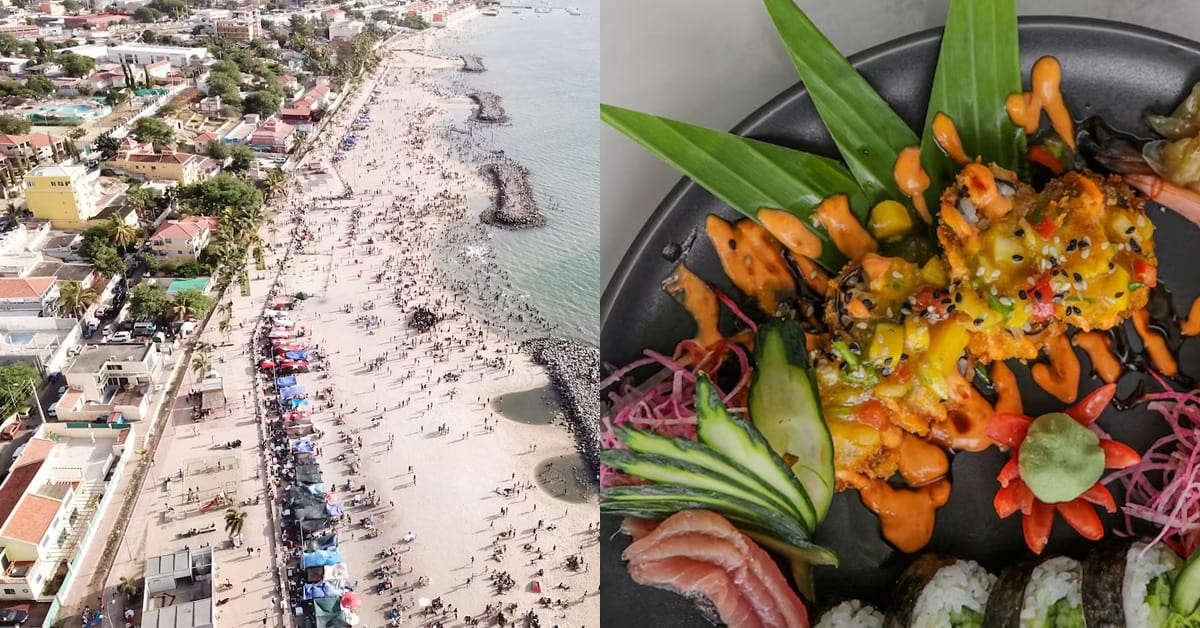Angolan cuisine uniquely blends African, Portuguese, and Brazilian influences, resulting in a rich and flavorful culinary experience. The country’s diverse geography and cultural heritage have contributed to developing a wide range of dishes, from hearty stews and grilled meats to fresh seafood and tropical fruits.
With its bold flavors and colorful presentation, Angolan food truly reflects the country’s vibrant culture and history. Whether you’re a seasoned foodie or simply curious about new flavors, exploring the cuisine of Angola is sure to be a delicious adventure.
Angolan cuisine
Is Angolan food halal?
Angolan cuisine is not inherently halal as it includes dishes that contain pork and alcohol.
However, there are some halal options available in Angola, particularly in Muslim-owned restaurants or those that cater to halal dietary requirements.
It is important to check with the restaurant or food provider to ensure that the food is halal before consuming it.
What kind of food do Angolan eat?
Angolan cuisine is diverse and influenced by Portuguese, African, and Brazilian cuisine. Some popular dishes include:
- Moamba de galinha – a chicken stew with palm oil, garlic, onions, and vegetables
- Calulu – a stew made with dried fish or meat, okra, and vegetables
- Muamba de peixe – a fish stew with palm oil, tomatoes, onions, and peppers
- Funge – a cornmeal porridge served with a variety of stews and sauces
- Pirão – a cassava flour porridge served with fish or meat stews
- Mufete – grilled fish served with cassava leaves and rice
- Caril de camarão – a shrimp curry with coconut milk and spices
- Matapa – a dish made with cassava leaves, peanuts, and coconut milk
- Feijão de óleo de palma – a bean stew with palm oil, onions, and garlic
- Arroz de marisco – a seafood rice dish with tomatoes, onions, and peppers.
How can you tell if the food is halal in Angola?
Angola is a predominantly Christian country, and halal food is not widely available. However, there are some Muslim communities in Angola, and they may have their own halal food sources.
If you are looking for halal food in Angola, you can try contacting local mosques or Islamic centers to ask for recommendations.
You can also look for restaurants or food stores that advertise halal certification or ask the staff if they serve halal food.
It’s important to note that halal certification may not be widely available in Angola, so it’s important to do your own research and ask questions to ensure that the food meets your dietary requirements.
Is it hard to find halal food in Angola?
Angola is a predominantly Christian country, and finding halal food may be challenging. However, some restaurants and markets in Luanda offer halal food options.
It is recommended to do some research and ask locals for recommendations to find halal food in Angola.
Is Angolan food healthy?
Angolan cuisine is generally considered healthy as it is based on fresh ingredients such as vegetables, fruits, and fish.
The traditional diet is rich in protein, fiber, and vitamins, and low in saturated fats. However, some dishes may be high in salt and oil, so it is important to consume them in moderation.
What is Angolan food similar to?
Angolan food is similar to other African cuisines, particularly those of neighboring countries such as Congo, Zambia, and Namibia.
It also has some similarities to Portuguese cuisine due to Angola’s colonial history.
Steps to find halal food in Angola
Here are some general steps that can be taken to find halal food in any country:
1. Research: Look for information about the Muslim population in Angola and the availability of halal food. Check online forums, social media groups, and websites that provide information about halal food in Angola.
2. Ask locals: Ask the locals, especially those who are Muslim, about the availability of halal food in the area. They may be able to provide you with information about halal restaurants or stores that sell halal food.
3. Check food labels: Look for food labels that indicate that the food is halal. Some food products may have a halal certification label, which indicates that the food has been prepared according to Islamic dietary laws.
4. Visit halal restaurants: Look for halal restaurants in the area and visit them to try out their food. You can also ask the restaurant staff about the ingredients they use and how they prepare their food.
5. Contact halal certification agencies: Contact halal certification agencies in Angola to get information about halal food products and restaurants in the area. They may be able to provide you with a list of certified halal food products and restaurants.
6. Bring your own food: If you are unable to find halal food in the area, consider bringing your own food. You can bring non-perishable food items such as canned food, snacks, and instant noodles that are halal-certified.

